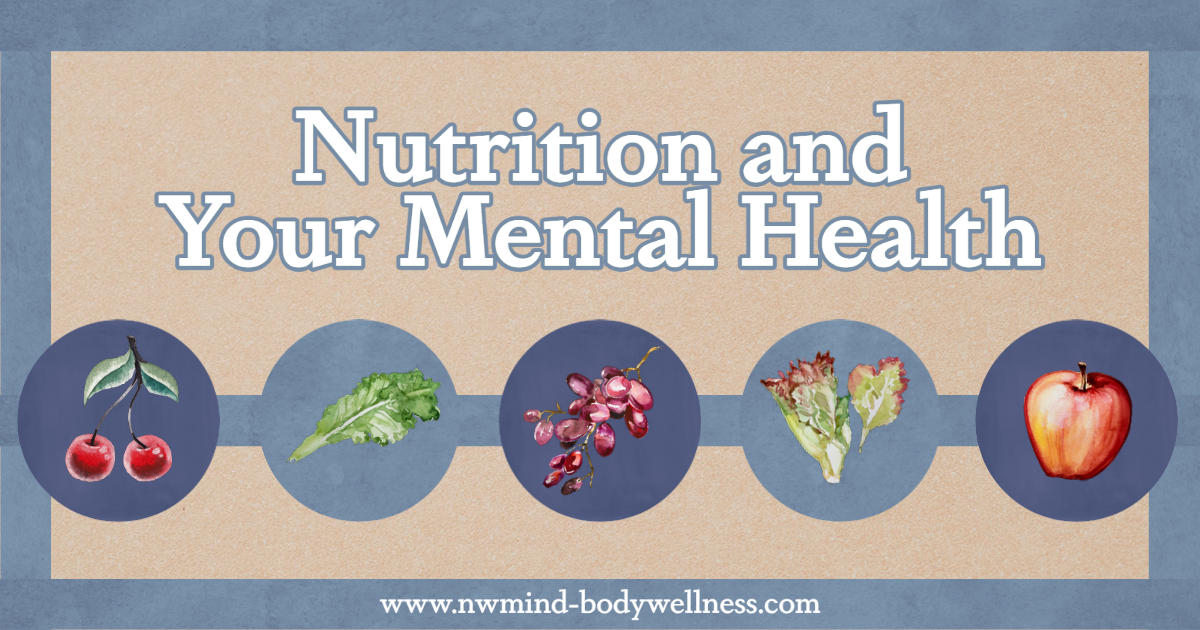Nutrition and Mental Health
Although many people only know about the relationship between nutrition and physical health, there are also links between one’s nutrition and their mental health.
Eating nutritiously offers many benefits to your body. These benefits include helping maintain a healthy weight, lowered risk of heart disease, increased muscle strength, lowered risk for some types of cancers, and much more.
In recent years, many researchers, including those of Harvard Medical School, have brought attention to the relationship between the food we eat and our mental health. Although the relationship is complex and still under research, evidence points to a strong correlation between the two.
The following offers more information on the connection between one’s nutrition and mental health, and tips on how you can benefit your own mental health by eating well.

Eat Regularly
By going long periods without eating, you might experience a decrease in your blood sugar levels. This can cause many negative symptoms, including feeling tired or irritable. If you make sure to eat regularly, you can avoid these controllable decreases of blood sugar.

Eat Grains, Fruits, and Vegetables
Grains, fruits, and vegetables offer vitamins and nutrients that are essential to the body and mind. By regularly eating these foods, you will likely feel happier and more energetic.

Eat Protein
Proteins provide your body the amino acids it needs, including some which help the function of your brain. The ability to think clearly and avoid “brain fog” is an essential piece of maintaining or bettering your mental health.

Stay Hydrated
Drinking water and staying hydrated throughout the day is vital to your mental health. Many studies show a strong link between hydration and one’s mood, energy level, and ability to concentrate.

Be Aware of Caffeine Intake
Caffeine is a part of many people’s daily routine. Even though many people do not experience negative effects on their mental health due to caffeine, there are also a significant number of people who do. In addition to the troubles caffeine may cause with sleeping, it can also cause anxiety and irritability.
Learn More and Get Help
- To learn more about the relationship between nutrition and physical health, we recommend speaking with your healthcare provider.
- To read more, we recommend the following links:
- Harvard Health “Nutritional Psychiatry: Your Brain on Food”: https://www.health.harvard.edu/blog/nutritional-psychiatry-your-brain-on-food-201511168626
- National Library of Medicine “Understanding Nutrition, Depression, and Mental Illnesses: https://www.ncbi.nlm.nih.gov/pmc/articles/PMC2738337/
- Mental Health Foundation (UK) “Diet and Mental Health”: https://www.mentalhealth.org.uk/explore-mental-health/a-z-topics/diet-and-mental-health
Return to the homepage: https://nwmind-bodywellness.com/
Read more articles at: https://nwmind-bodywellness.com/articles/
